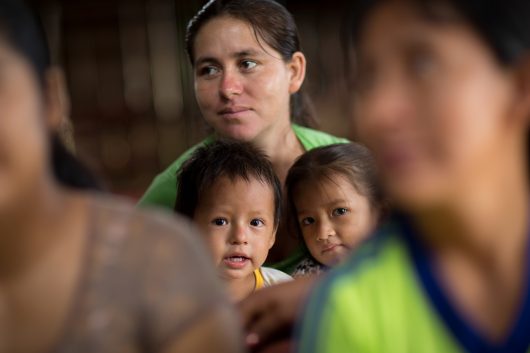Project CASITA Helps Infants and Toddlers in Peru
 Project CASITA, created by Partners in Health in Peru, identifies infants and toddlers with developmental delays and trains parents and caregivers to stimulate children and encourage age-appropriate behavior. The program is designed to help children aged six to 24 months who exhibit signs of potential developmental delay, such as lack of communication and mobility. The program began in November 2013 and in 2016 had enrolled 180 children and families. Researchers found that 85 percent of children exhibiting early developmental delays showed improvement after time in the program. The program is located in Carabayllo, a province north of Lima.
Project CASITA, created by Partners in Health in Peru, identifies infants and toddlers with developmental delays and trains parents and caregivers to stimulate children and encourage age-appropriate behavior. The program is designed to help children aged six to 24 months who exhibit signs of potential developmental delay, such as lack of communication and mobility. The program began in November 2013 and in 2016 had enrolled 180 children and families. Researchers found that 85 percent of children exhibiting early developmental delays showed improvement after time in the program. The program is located in Carabayllo, a province north of Lima.
Community health workers aid the mothers and teach them activities to do with their children to encourage mobility and language development. The community health workers help parents design toys to exercise their infants’ tongues and play games to promote language development. Toddlers also work on picking up small objects to develop their fine motor skills. Some health workers meet parents weekly in their home and other parents attend education sessions at a central location. Health workers and caregivers typically work together for three months.
Grand Challenges Canada helps to support Project CASITA. Initially, Grand Challenges Canada provided a grant of $199,000. In May 2016, they provided a second grant to help Partners in Health expand the program to reach 3,000 children. In order to successfully expand, 30 additional community health workers were trained.
Partners in Health also cooperates with the Peruvian Ministry of Health to ensure programs are integrated and sustainable on the community and municipal levels.
Project CASITA supports families in other ways as well. They provide food baskets and mental health services. Families also receive help in applying for national identification cards which grant them access to a variety of public services.
– Sarah Denning
Photo: Flickr
